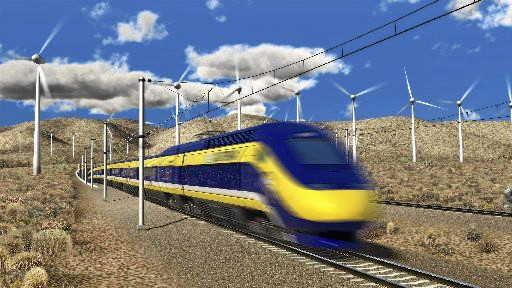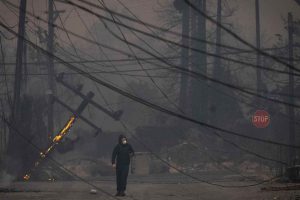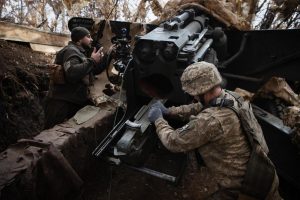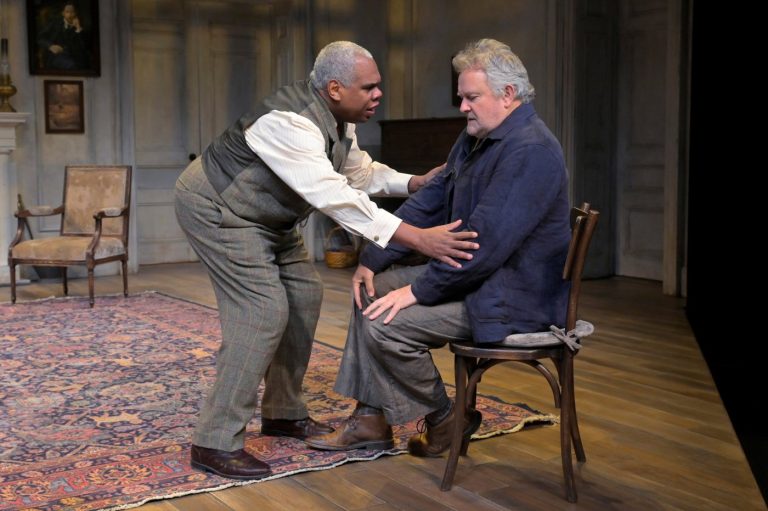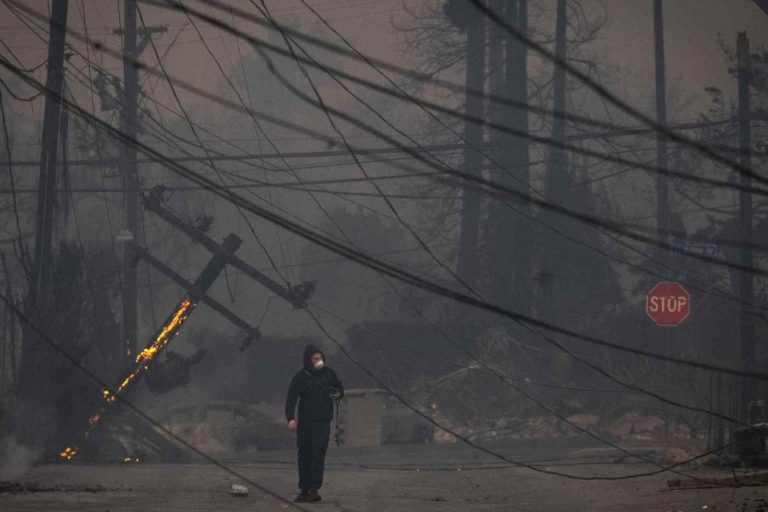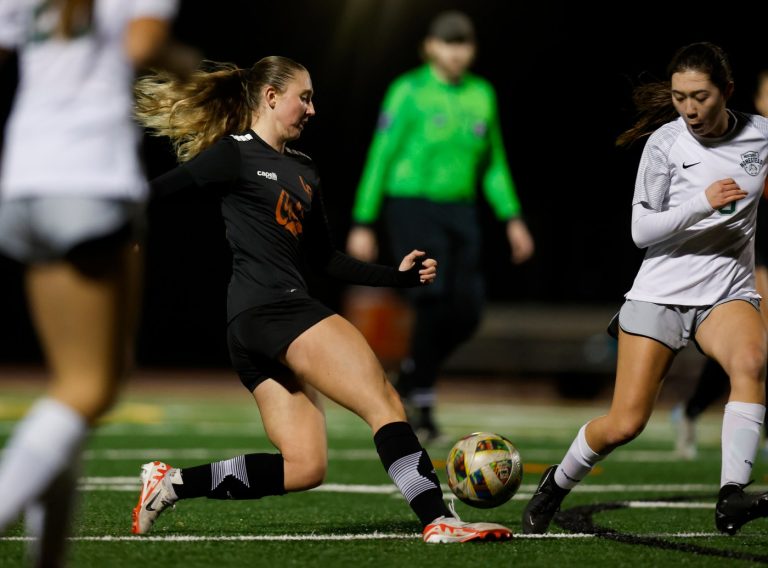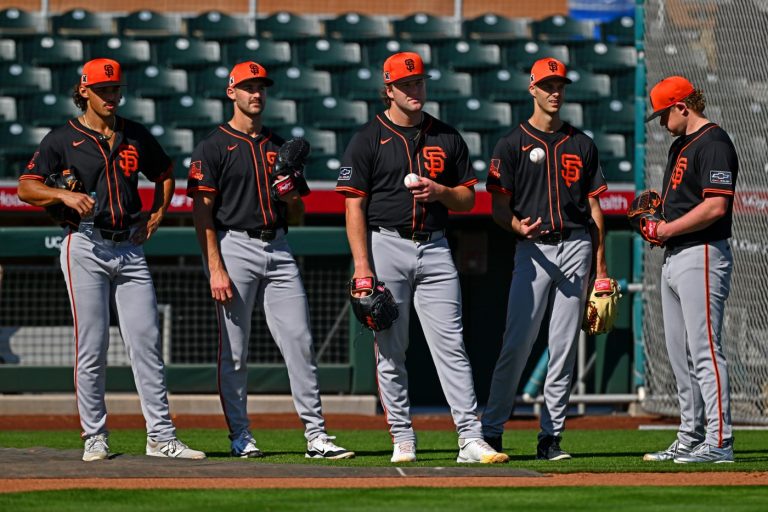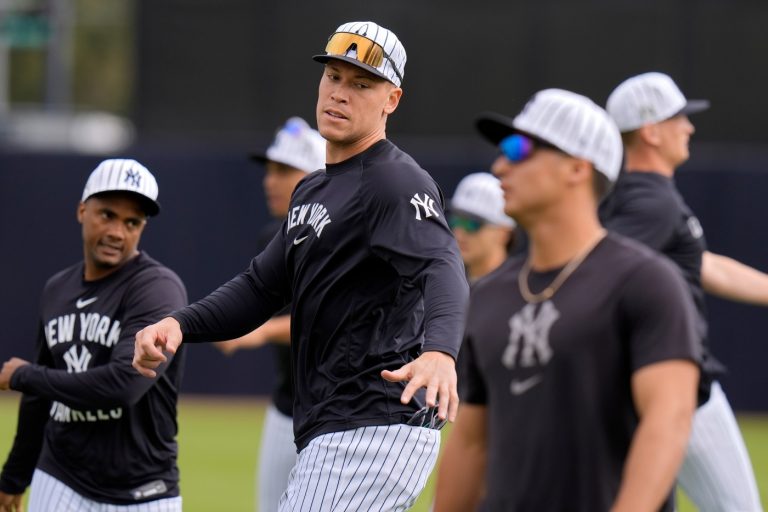The Trump administration has launched an investigation into California’s high-speed rail project in what could be the first step in clawing back the $4 billion promised by the Biden administration to build out the first section of the line, from Merced to Bakersfield.
“For too long, taxpayers have subsidized the massively over-budget and delayed California High-Speed Rail project,” U.S. Transportation Secretary Sean Duffy said in his announcement of the review on Thursday.
In 2008, voters approved $10 billion in bonds for the project, which was envisioned as a two-hour-and-40-minute ride from Los Angeles to San Francisco. In the years since, it has become somewhat of a poster child for political dysfunction. Originally estimated to cost $45 billion for the 776-mile line and slated to open in 2030, the cost estimate has grown to nearly $128 billion, thanks to inflation and growing real estate and labor costs. It could be decades before the train is extended north to San Francisco and south to Los Angeles.
Amid the ballooning costs and extended timelines, Gov. Gavin Newsom in 2019 announced that he would scale back the project, first focusing on completing the 171-mile stretch from Merced to Bakersfield. Today, that segment is estimated to cost $35 billion and is set to begin operating between 2030 and 2033.
But completing that Central Valley segment depends on federal funding. California rail officials had hoped to receive $8 billion in funding from the Bipartisan Infrastructure Law between 2023 and 2028 to help build the stretch.
Funding for the project has fluctuated from administration to administration. During his first term in office, Trump canceled $1 billion in federal funding that had been promised to the project. Four years later, the Biden administration awarded the project $3.1 billion. The project’s administrators say the constant uncertainty around financing is one of the main reasons for the delays.
State auditors, however, have found that the problems run deeper, saying that the authority’s cost overruns can also be attributed to “poorly managed contracts” and its “flawed decision” to start construction in the Central Valley, a largely rural area.
Earlier this month, Trump — who has regularly used deep-blue California as a political punching bag — signaled that he might launch a probe into the high-speed rail project, saying during a press conference at the Oval Office that it was the “worst-managed project” he’s ever seen and that the state could save “hundreds of billions” by providing “the finest limousine service” for people traveling between San Francisco and Los Angeles rather than finishing the railroad.
The next day, California Republicans sent Trump a letter urging him to investigate the high-speed rail authority.
“We welcome this investigation and the opportunity to work with our federal partners,” said California High-Speed Rail Authority CEO Ian Choudri in response to the administration’s announcement. “With multiple independent federal and state audits completed, every dollar is accounted for, and we stand by the progress and impact of this project.”
Duffy’s announcement also drew an instant reaction from some of the railroad’s biggest supporters, such as California Sen. Scott Wiener.
“California is committed to High-Speed Rail. The project is happening,” Wiener said in a statement. “Sabotage from federal actors should never impede our responsibility to deliver affordable transportation for Californians.”
Related Articles
Transportation chief Sean Duffy launches probe of California’s high-speed rail project
Letters: We can all take steps to defend democracy
Walters: Trump targets California’s bullet train. It may deserve a mercy killing
Wiener called the Trump administration’s attack on the railroad a “massive government handout” to Elon Musk, “who is afraid that modern public transportation will undermine his business interests,” which include the electric car company Tesla and the Boring Company, a tunnel-digging company. A decade ago, Musk previously floated ideas for a “hyperloop” in the Central Valley, though he told later his biographer Ashlee Vance that the proposal was a ruse to get legislators to cancel plans for high-speed rail.
The Trump administration contrasted the slow progress on California’s high-speed rail with the private Brightline West rail line, a 218-mile route between Los Angeles and Las Vegas that began construction in 2025 and is set to open in 2028. That project received $6.5 billion in backing from the Biden administration, including $3 billion in federal infrastructure funds.
Despite all of the delays and politicking, 54% of respondents in a recent Emerson College poll of California voters said the project remains a good use of state funds.
